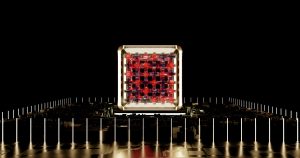Smart City Developments Shaping Future Housing Experiences Globally
Welcome to the future of housing! With the rise of technology and the need for sustainable living, smart city developments are shaping housing experiences all around the world. From improved energy efficiency to integrated smart home systems, these developments are changing the way we live and interact with our surroundings. In this article, we will explore the impact of smart city developments on future housing experiences globally and how they are revolutionizing the way we live.
The Rise of Smart Cities
Smart cities are urban areas that use advanced technology to improve the quality of life for its citizens. It involves the integration of different data-driven technologies such as Internet of Things (IoT), artificial intelligence, and big data to optimize various aspects of the city, including housing. The concept of smart cities has gained significant traction in recent years, with more and more cities around the world adopting it as a means to address the challenges of urbanization, including traffic congestion, pollution, and lack of affordable housing.
Improved Energy Efficiency
One of the most significant impacts of smart city developments on housing experiences is the improvement in energy efficiency. With the use of smart grids, sensors, and energy management systems, these developments can optimize energy consumption and reduce waste. For example, smart homes can adjust the temperature, lighting, and appliances based on the residents’ patterns, resulting in reduced energy consumption and cost savings.
Integrated Smart Home Systems
Smart city developments also enable the integration of various smart home systems, making our living spaces more convenient and efficient. With the use of IoT and artificial intelligence, residents can control their home appliances, security systems, and lighting through their smartphones or voice commands. This level of connectivity not only enhances the overall living experience but also increases the security and safety of the homes.
Global Impact of Smart City Developments on Housing
The idea of smart cities and its impact on housing is not limited to a certain region or country. It is a global phenomenon that is transforming the way we live and interact with our environment. For example, in Singapore, the “Smart Nation” initiative aims to leverage technology to create a sustainable and livable environment for its citizens. This includes the use of smart homes, renewable energy, and efficient water management systems. Similarly, in Barcelona, the “CityOS” project has created a smart city platform that integrates data from various sources to optimize the city’s services and improve the quality of life for its residents.
Sustainable Living
With the increasing concern about climate change and its impact on the environment, smart city developments are also promoting sustainable living. From green buildings with energy-efficient designs to the use of renewable energy sources, these developments are mitigating the negative impact of urbanization on the environment. This not only benefits the planet but also provides residents with a healthier and more sustainable living environment.
Affordable Housing
Another positive impact of smart city developments on housing experiences globally is the potential to provide affordable housing options. With the integration of technology and efficient use of resources, the cost of living in these developments can be significantly reduced. This is especially beneficial for low-income families who struggle to find affordable housing in urban areas.
Challenges and Future Outlook
Despite the numerous benefits, smart city developments also face challenges, including data privacy and security concerns, and the digital divide between different socio-economic groups. However, with advancements in technology and data protection measures, these challenges can be addressed.
In the future, we can expect to see further advancements and integration of technology in smart city developments, making our housing experiences even more connected and sustainable. With the potential to address various urban challenges, smart city developments are shaping the future of housing globally and creating a more efficient and livable world for all.










